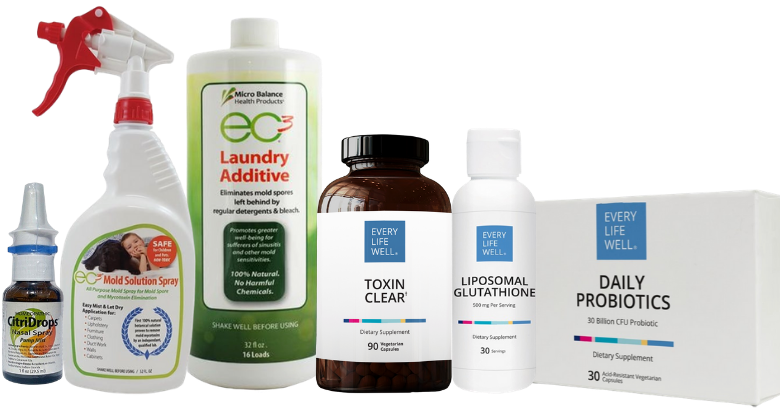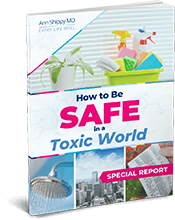Air Pollution Affects Fertility And Pregnancy
It’s well known that the perinatal period is a critical time in life, that the environment of the mother influences the health of the baby. It goes well beyond this, however.
We now know that many adult diseases that develop over time, have origins in the fetal period.
Poor nutrition, stress and pollution exposures in the womb, or even prior to conception, influence health throughout the lifetime.
Pollution triggers epigenetic changes, not changes to the genes themselves, but changes in how the genes are expressed that influence our risk for disease.
This article will dive into epigenetics and how air pollution, from both outdoor air and second hand smoke, affect fertility, pregnancy and health of the baby.
We’ll take a look at some of the more recent science.
By the end, you’ll see just how important clean air is for everyone, and especially those who are more susceptible to harmful toxins during development.
Keep reading to learn more about:
- Epigenetics and methylation
- The connection between air pollution and fertility
- New research on second hand smoke exposure during pregnancy
- New research on air pollution exposure during pregnancy
- Action steps you can take, starting right away, to increase the clean air you breathe
Epigenetics And Methylation
Before we dive into the science about air quality and the perinatal period, let’s define some terms: epigenetics and methylation.
You are likely familiar with genes, your personal blueprint found in your DNA, but your genes aren’t the whole story.
In fact, it is estimated that genes only influence around 10 percent of disease and it’s your environment, or to be more precise, the environmental effect on gene expression, that accounts for the other 90 percent.
This is epigenetics. Epigenetics literally means “on top of genetics” and refers to gene expression that is influenced by diet, movement, stress, sleep and other factors in the environment – a big one being exposure to toxins.
One way that genes are expressed, or not expressed, is via methylation.
Methylation is the process of adding a methyl group (one carbon atom plus 3 hydrogens) to a molecule.
When methylation is turned on (or off) at the genetic level, it influences the expression of genes to either promote or deter from health.
With this basic understanding, let’s dive into some of the science surrounding air pollution and smoking.
Air Pollution’s Effect On Fertility
Fertility is a perfect example of the interplay between genetics and the environment, nature and nurture.
As fertility levels decline, we can’t overlook the role of toxins.
Reproduction requires ten percent of a woman’s genetic code. Not only is genetic code passed from parents to child, but epigenetics are passed along also. Epigenetics connect generations.
Air pollution has a direct effect on fertility for three reasons.
- Toxins in air pollution act as endocrine disruptors, disrupting and altering hormonal balancing, including the sex hormones required for fertility. Examples include heavy metals and estrogen-like chemicals found in diesel exhaust.
- Toxins in air pollution induce reactive oxygen species, unstable molecules that damage DNA, proteins and cell membranes. The developing egg is particularly susceptible to oxidative damage.
- Toxins in air pollution cause alterations in DNA methylation. As discussed, methylation is important for positive epigenetic expression.
Both human epidemiologic studies and animal studies support the connection between air pollution exposure and a decline in fertility.
In addition, high levels of air pollution are linked to an increased risk for miscarriage. In one study of women undergoing IVF (invitro fertilization fertility treatments), those exposed to higher rates of air pollution had lower rates of live births and higher rates of miscarriage.
The same holds true for the general population.
Second Hand Smoke Leads To Epigenetic Changes During Pregnancy
Twenty five percent of pregnant women report exposure to secondhand smoke at home, at work or from contact with family and friends.
Cigarette smoke is linked to epigenetic changes and changes in methylation, occurring at the cellular level that affect health.
We know that women who smoke have a greater risk of fertility issues, miscarriage, pregnancy complications and the baby is at an increased risk for low birth weight, birth defects and developmental issues.
Researchers wanted to understand if the same holds true for pregnant women exposed to secondhand smoke.
A recent study in Environmental Health Perspectives looked at blood levels of cotinine in pregnant non-smokers.
Cotinine is a byproduct of nicotine that correlates to second hand smoke exposure.
Then, after the women in the study gave birth, their umbilical cord blood was analyzed to look at epigenetic changes in the baby.
Researchers found that levels of cotinine correlated with epigenetic changes on certain genes related to brain function, metabolic regulation, cell signaling, cardiovascular and nervous system function, diabetes and cancer.
The epigenetic changes in non-smokers with low levels of exposure affects the same areas of DNA seen in smokers.
The conclusion is that no level of cigarette exposure is safe.
Even low levels of second hand smoke increase disease risk through changes in epigenetics.
Health Effects Of Air Pollution Exposure During Pregnancy
Like second hand smoke, air pollution not only affects fertility, but pregnancy as well through epigenetic changes.
A recent study in Environmental Health focused on Hispanic mothers exposed to air pollution. In the study, those mothers with a higher exposure to air pollution during pregnancy gave birth to lower weight babies.
Then, over the first 6 months of life, the babies showed an accelerated weight gain pattern, including increased adiposity and weight around the midsection.
This type of pattern may lead to problems with health during childhood and chronic disease later in life including obesity, diabetes and heart disease.
The epigenetic changes due to toxin exposure offer an explanation.
The exposures faced before birth and in early childhood greatly affect health as an adult.
Air pollution disproportionality affects minorities as they are more likely to live in places with higher pollution levels.
We can’t ignore the role that this environmental burden plays in obesity.
There are many contributing factors and one is the air that we breathe.
Air Pollution Action Steps
Knowledge is power. Take steps to limit your exposures now and protect your unborn children and grandchildren down the road.
While we may think that a little bit won’t hurt, it is especially important to be diligent in avoiding even small exposures during the perinatal period – before, during and after pregnancy.
This goes for men as well as women.
Here are some tips:
- Don’t smoke and avoid secondhand smoke. Set boundaries in work and social settings and stick to them. If a neighbor is smoking on their porch, go inside.
- Be aware and be smart. Close windows on high ozone days. Avoid activities alongside busy roadways. Don’t exercise outdoors on days with higher air pollution. Check daily or get an alert with the AirVisual app. Read the blog, Air Quality Index to learn more.
- Filter indoor air. Indoor air may be higher in toxins than outdoor air. Small, portable units are available from IQAir and Austin Air.
- Don’t underestimate the importance of nutrition. During preconception and pregnancy, micronutrients and phytochemicals are vital for egg and sperm quality, optimal methylation, detoxification and more. Learn more about the optimal whole foods diet for fertility here.
- Support detoxification. As much as we try, we can’t avoid every exposure so make sure your body is in prime shape to take care of toxins that find their way in.
- Consider supplements such as vitamin C and glutathione that support the detoxification of specific air pollutants. And a good pre-natal supplement, like the Every Baby Well® brand. Be sure to work with your provider around supplement safety during pregnancy.
- Do your best and let go of the rest. It isn’t helpful to dwell on what we could have or should have done in the past. Guilt and stress aren’t good for our health either. As we know better, we can do better moving forward and advocate for change in our neighborhoods, communities and even globally.
As we breathe, we breathe in the environment around us and it interacts with our bodies on an epigenetic level.
Clean air promotes oxygenation and overall health, while toxins found in cigarette smoke and air pollution affect fertility and increase risk for disease.
We might not often stop and think about the air we are breathing, but with mounting evidence we simply can no longer overlook the importance of clean air before, during and after pregnancy.
A few simple changes in behaviors and lifestyle make a measurable difference and offer an important peace of mind.
References














